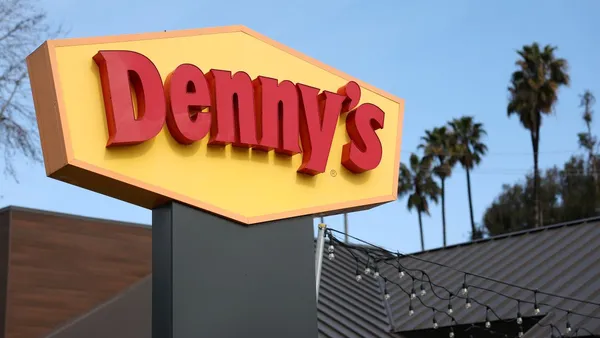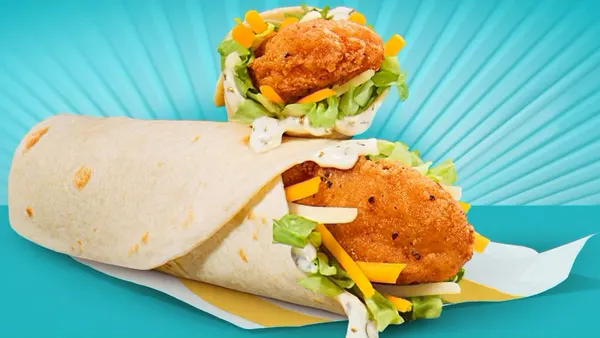Dive Brief:
- The Good Food Institute has ranked Jamba Juice and White Castle as the top performers in its second annual The Good Food Restaurant Scorecard, awarding the chains scores of 9 out of 10. Panera was a close third at 8.75 points, followed by Yard House at 8.5 points.
- GFI evaluates the top 100 U.S. restaurant chains based on the number of plant-based items on their menus and how successfully they advertise these entrees to mainstream diners.
- "Plant-based burgers from Impossible Foods and Beyond Meat have been hot on menus for a while, but no restaurant has yet featured a breakout plant-based chicken, seafood, or egg dish," Alison Rabschnuk, GFI director of corporate engagement, said in a company release. "The brands that launch these kinds of dishes first will gain a lot of positive PR and attention on social media and will open themselves up to new customers looking for more plant-based variety."
Dive Insight:
Rabschnuk's argument that embracing plant-based meal options can pique consumer attention has been especially true for White Castle. Since rolling out its Impossible Slider — made with meat-free Impossible patties that look, taste and "bleed" like real beef — to all 377 of its locations, more than 60,000 consumers have signed a petition urging McDonald's to do the same. When the chain initially debuted the product, VP Jamie Richardson said that some locations were selling as many as 300 Impossible Sliders per day.
Not only does White Castle's inclusion of the popular vegetarian option on its menu give it a first-mover advantage in the competitive fast food space, it also gives its brand halo extra shine. Today's consumers are increasingly turning to meat alternatives because of environmental sustainability and animal welfare concerns, hot button issues the burger chain can now add to its marketing arsenal if it chooses to.
Competitors are following suit. Shipments of plant-based proteins to food service companies spiked 20% in 2018, and NPD research shows that nearly a quarter of U.S. diners say they eat plant-based foods, even though many do not maintain vegan or vegetarian diets. The firm also found that burgers are the fastest-growing plant-based food category, with double-digit year-over-year growth in pounds shipped to operators.
This growth can be traced throughout the global QSR space — A&W Canada launched a meat-free Beyond Burger last summer, for example, which sold out in only a few weeks. Carl's Jr. also recently began selling a plant-based version of its Famous Star burger made with Beyond patties, and Del Taco serves Beyond Meat "chorizo" crumbles.
Demand for plant-based foods also is fueling the growth of once-niche restaurant chains, with fast casual VeganBurg planning to open 300 franchised locations in California.
"It's possible that protein overall is evolving into a category, whether animal meat, bans, nut, soy, wild game or other proteins, in forms ranging from beverage to center-of-plate," NPD advisor David Portalatin said in a release.
But while the plant-based burger arms race has certainly brought fast food chains a flashy new path to growth, there could be — as Rabschnuk predicts — even beefier rewards waiting for the first restaurant to nail a plant-based chicken offering. KFC could be the first U.S. chain to do so, as its reportedly experimenting with a plant-based chicken item in its U.K. and Ireland markets. Regardless of which chain is first to deliver a viable alternative to chicken nuggets and strips, one thing is certain: America's appetite for plant-based fare is growing, and the time is right for major restaurants to diversify their menus accordingly.












